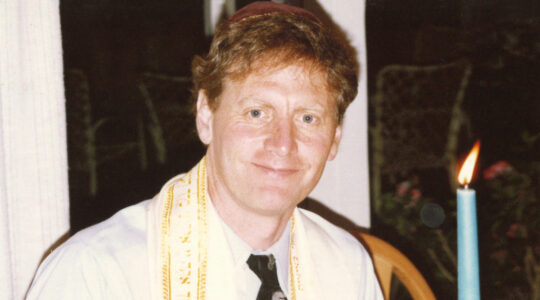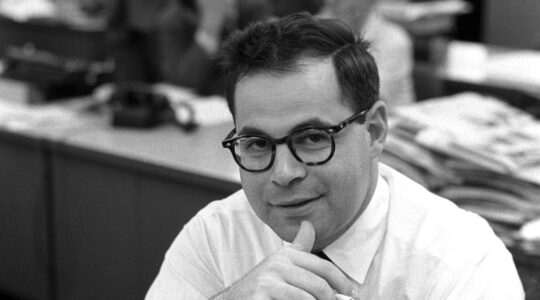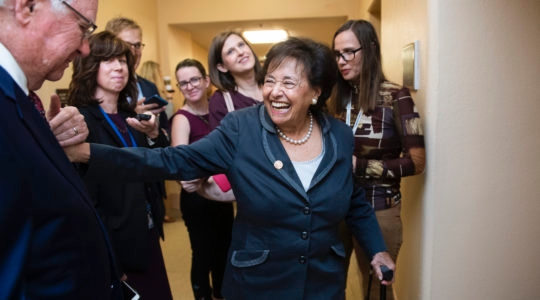(JTA) — Rabbi Rachel Cowan, a pioneer in the Jewish healing movement, has died.
Cowan died on Friday of brain cancer at her home in Manhattan at the age of 77.
She was diagnosed two years ago with glioblastoma, an aggressive form of brain cancer, the same cancer that Sen. John McCain died of days before the rabbi.
In 1990, Cowan was one of the co-founders of the Jewish Healing Center, a pioneer in the Jewish healing movement that provides spiritual resources and wisdom to help people deal with the suffering that surrounds personal loss and serious illness.
She also served for 14 years as director of the Jewish Life and Values Program at the Nathan Cummings Foundation in New York, where she helped direct grants for programs that addressed the spiritual dimensions of serious illness.
In 2004, she left the foundation for the Institute for Jewish Spirituality in Manhattan, initially funded by the foundation, which organizes retreats for rabbis, cantors, educators and congregants interested in enhancing their religious life with contemplative Eastern practices borrowed from the healing services such as meditation, yoga and mindfulness.
Cowan’s family could trace its lineage back to the Mayflower. She converted to Judaism years after her marriage to writer and reporter Paul Cowan, the author “An Orphan in History,” a classic memoir of his assimilated upbringing and eventual embrace of his own Jewish identity. The couple had married in 1965, and then spent time registering black voters in Mississippi and later serving in the Peace Corps in Ecuador. In the 1970s, they became involved in the Jewish revival on the Upper West Side of Manhattan, and belonged to the Ansche Chesed synagogue, which was made up of smaller congregations.
Cowan completed her rabbinic studies at Hebrew Union College after the death of her husband in 1988, eight years after her official conversion to Judaism. She turned to the spiritual dimension of healing in part as a reaction to the comforts — and inadequacies — of Jewish tradition she experienced during her husband’s struggle with leukemia.
“Moses’ path — and ours — is to move from the narrow place of doubt, fear, anger, and jealousy to an expansive covenanted life in a community of mutual care and responsibility,” she wrote in an essay for “The Torah: A Women’s Commentary, a 2008 collection. “In such a community, all people are holy. They — we— can remind each other that what matters is not the ambition of the self, but the work of helping to make the soul, the home, the office, and the world a safer, wiser, more compassionate place for all. Such a perspective helps each of us to come closer to being a humble servant of God.”
Rachel Cowan and her husband were the authors of the book: “Mixed Blessings: Overcoming the Stumbling Blocks in an Interfaith Marriage.”
Cowan, after receiving her diagnosis, made a video a year ago calling on U.S. lawmakers to not vote to repeal the Affordable Care Act, also known as Obamacare. She also urges them to preserve Medicare, the federal health insurance program for the elderly and disabled that would have been overhauled, and critics say diminished, under some Republican plans.
“Last week I was back in the hospital for another series of treatments and I woke in the middle of the night and I thought to myself, ‘Oh my goodness, there are people who want to take this away. I will die without it,’” she said in the video.
Cowan is survived by a daughter, Lisa Cowan; a son, Matthew; two sisters, Constance Egleson and Margaret White; a brother, Richard; and four grandchildren.
JTA has documented Jewish history in real-time for over a century. Keep our journalism strong by joining us in supporting independent, award-winning reporting.





